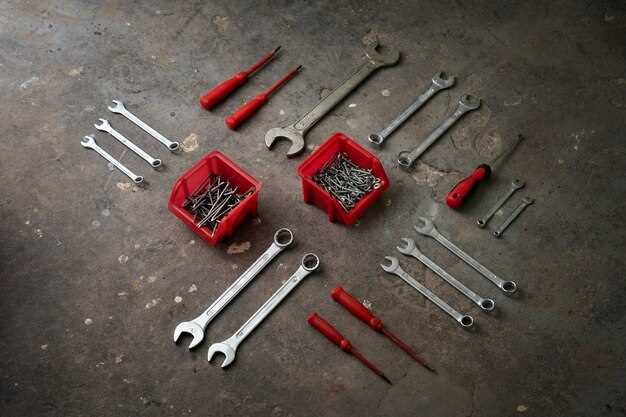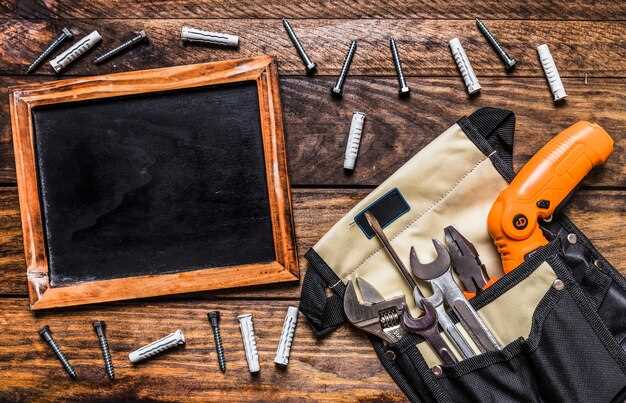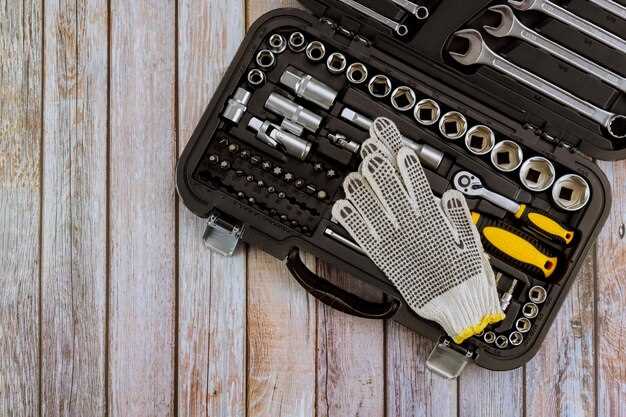
Owning a Jeep comes with its own set of joys and responsibilities. Regular maintenance is essential to keep your vehicle running smoothly and efficiently. To ensure you are well-equipped for any maintenance tasks, having the right tools in your garage is crucial. A well-rounded maintenance kit can make all the difference in tackling repairs and ensuring your Jeep is always in peak condition.
In this article, we will explore the essential tools every Jeep owner should have in their garage. From basic hand tools to specialized equipment, having the proper kit allows you to perform routine inspections, make necessary adjustments, and address potential issues before they escalate. Whether you’re a seasoned mechanic or a weekend warrior, investing in these must-have tools will help you maintain your Jeep with confidence.
Join us as we dive into the specific tools that will transform your garage into a fully equipped Jeep maintenance station. With the right arsenal at your disposal, you’ll be ready to tackle any challenge that comes your way and keep your Jeep adventure-ready!
Top Hand Tools Every Jeep Owner Should Have

Every Jeep owner knows that maintaining their vehicle is essential for optimal performance and longevity. A well-equipped toolkit can make all the difference when tackling maintenance tasks. Here are the top hand tools that should be included in every Jeep owner’s kit.
1. Socket Set: A comprehensive socket set is indispensable for working on various components of your Jeep. It allows you to easily remove and replace bolts in tight spaces, making repairs more manageable. Look for a set that includes both metric and standard sizes to cover all bases.
2. Wrenches: A quality set of wrenches is crucial for any Jeep maintenance task. Consider both open-end and box-end wrenches for versatility. Adjustable wrenches are also handy for quickly loosening or tightening bolts without needing multiple tools.
3. Screwdriver Set: A variety of screwdrivers will prepare you for any situation, from securing interior components to servicing electrical connections. Include both flathead and Phillips head screwdrivers in various sizes to ensure you’re ready for any task.
4. Pliers: Pliers are essential for gripping, bending, and cutting wire or other materials. A combination of needle-nose, slip-joint, and locking pliers can provide a solid foundation for your toolkit, assisting with tasks ranging from electrical work to general repairs.
5. Torque Wrench: Maintaining proper torque specifications is vital for the safety and performance of your Jeep. A torque wrench ensures that you tighten bolts to the manufacturer’s recommended settings, particularly when working on engine components or suspension systems.
6. Hammer: A soft-faced hammer is useful for gently persuading parts into place without causing damage. This tool comes in handy during assembly or aligning components, ensuring you maintain the integrity of your Jeep.
7. Tire Iron: A tire iron is essential for changing flat tires. Having a reliable and sturdy tire iron in your kit enables quick tire changes, which is particularly important for off-road adventures where unexpected flats can occur.
8. Chain Wrench: For working on stubborn components such as oil filters, a chain wrench can provide the grip needed to remove tough fittings. This tool is especially useful for tasks requiring extra leverage.
By investing in these essential hand tools, Jeep owners can be prepared to handle a variety of maintenance tasks. A well-rounded toolkit not only saves time and money but also enhances the overall ownership experience of your Jeep.
Essential Diagnostic Tools for Jeep Troubleshooting
Having the right diagnostic tools is crucial for effective Jeep troubleshooting in your garage. A comprehensive diagnostic kit will enable you to identify issues quickly and accurately, saving you both time and money. Here are some must-have tools for any Jeep enthusiast.
Firstly, an OBD-II scanner is essential for reading error codes from your Jeep’s onboard computer. This tool provides insights into various systems, allowing you to pinpoint problems without guesswork. Look for a scanner that offers live data monitoring and can perform advanced functions, such as programming and resetting service lights.
Secondly, a multimeter is indispensable for diagnosing electrical issues. With this tool, you can check battery voltage, continuity, and circuit performance. This is particularly useful for troubleshooting issues with lights, sensors, and other electrical components in your Jeep.
Thirdly, a smoke machine can be invaluable in detecting vacuum leaks. By introducing smoke into the intake system, any leaks will be visibly exposed, making it easier to address the issue efficiently. This tool is especially useful for older Jeeps that may have developed wear over time.
Additionally, invest in a compression tester to evaluate the engine’s health. This tool measures the pressure in each cylinder, helping you determine if there are issues such as valve leaks or worn piston rings. Regular checks can help you maintain your Jeep’s performance.
Finally, a code reader with graphing capabilities can provide deeper insights into sensor data and system performance. This advanced tool will assist you in diagnosing more complex issues beyond basic error codes, ensuring your Jeep runs smoothly.
By integrating these essential diagnostic tools into your garage kit, you will enhance your troubleshooting capabilities and keep your Jeep in top condition for all your adventures.
Safety Gear and Accessories for Jeep Maintenance

When it comes to maintaining your Jeep in the garage, safety should always be a top priority. Having the right safety gear and accessories not only protects you but also ensures that the maintenance process goes smoothly. A comprehensive safety kit is essential for any Jeep owner.
First and foremost, a quality pair of safety glasses should be part of your maintenance kit. These glasses protect your eyes from debris and harmful substances that may be released during repairs or replacements. Additionally, using a face shield can provide extra protection when working with power tools or during welding tasks.
Next, investing in a durable pair of gloves is crucial. Whether you’re handling engine components or working under the vehicle, gloves can protect your hands from sharp edges, hot surfaces, and chemicals. Choose gloves that offer a good grip and flexibility to maintain dexterity while working.
Ear protection is another important accessory, especially when using power tools that generate high noise levels. Earplugs or earmuffs can help prevent hearing damage, making your maintenance tasks safer and more comfortable.
Having a sturdy pair of knee pads can greatly enhance your comfort level while working under the Jeep. These pads provide cushioning and help prevent pain from kneeling on hard surfaces for extended periods.
Finally, a first aid kit should always be readily accessible in your garage. This kit should include bandages, antiseptics, and other essential medical items to treat minor injuries that may occur during maintenance tasks.
By equipping your garage with the appropriate safety gear and accessories, you create a safer environment for Jeep maintenance. This proactive approach not only safeguards your well-being but also allows you to focus on keeping your vehicle in top condition.




